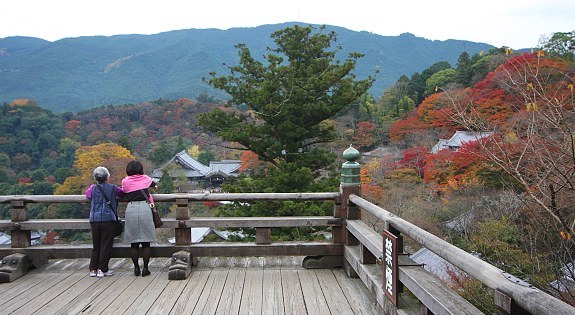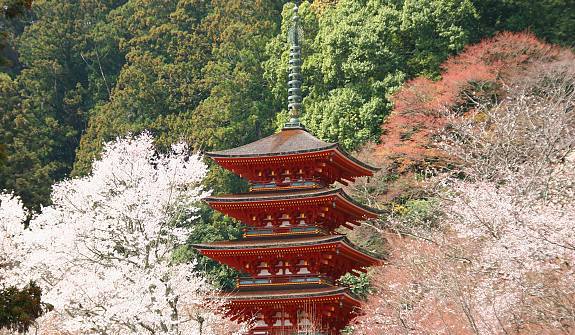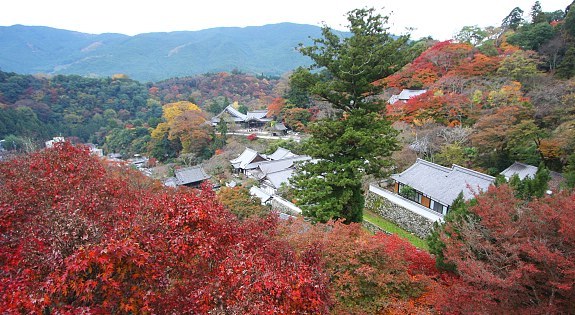
The approach to Hasedera consists of a small temple town, whose restaurants and merchants have been catering to temple visitors for centuries. At the base of the temple is the Niomon Gate with statues of guardian deities housed within. A long corridor with almost 400 steps leads up to the main hall, passing a variety of other buildings along the way. From the top, the view can be breathtaking, and during cherry blossoms or autumn colors the view itself can be reason enough to make the journey.

Hasedera's main object of worship is a twelve meter tall wooden statue of the Kannon deity, which stands in the main hall but is only partially visible. In the early 8th century, a monk came across a large tree near Hase village and decided to use it for carving a statue. Because the tree was so big, he carved two statues. One became the temple's object of worship, while the other was cast into the ocean in hope that it would reappear and save people elsewhere. Fifteen years later it washed upon shore near Kamakura, where another Hasedera Temple was built to house and venerate the statue.




No comments:
Post a Comment